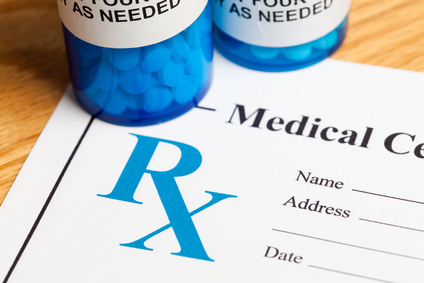- Calls to this hotline are currently being directed to Within Health, Fay or Eating Disorder Solutions
- Representatives are standing by 24/7 to help answer your questions
- All calls are confidential and HIPAA compliant
- There is no obligation or cost to call
- Eating Disorder Hope does not receive any commissions or fees dependent upon which provider you select
- Additional treatment providers are located on our directory or samhsa.gov
I’ve been diagnosed with bulimia: Is medication necessary to recover?

Contributor: Courtney Howard, BA, writer for Eating Disorder Hope
Just as no two cases of bulimia nervosa are exactly the same, treatment varies depending on the individual. Prescription medication is not always necessary to recover but, in many cases, it can aid psychotherapy in the treatment of bulimia and other eating disorders.
Antidepressants classified as selective serotonin reuptake inhibitors (SSRIs) are most commonly prescribed for eating disorder treatment. Fluoxetine, or Prozac, is an SSRI that remains the only drug approved by the U.S. Food and Drug Administration (FDA) for the treatment of bulimia nervosa.
Mental Health
It has been proven to reduce binging and purging impulses and behaviors[1] in those with bulimia, regardless of whether there is concurrent clinical depression. Any medications that strongly affect appetite or list weight gain as a side effect are discouraged, as these might be triggering and reduce the overall effectiveness of treatment.
It is essential that all mental health issues be considered when prescribing medication in the wake of a bulimia nervosa diagnosis. As noted in a 2002 publication[2] in the Journal of Psychiatry and Neuroscience, “Studies have documented higher rates of major depression, bipolar disorder, anxiety disorders, obsessive-compulsive disorder, personality disorders, and alcohol and substance abuse disorders among eating disorder sufferers.”
Mood stabilizers or other prescription medications can be more effective than SSRIs in treating those with bulimia if the individual also struggles with a personality or mood disorder.
Side Effects
 When someone is still engaging in binging and purging behaviors, including taking over-the-counter drugs for the latter, the use of certain prescription medications can pose significant health risks. [2] For example, taking tricyclic antidepressants while continuing to purge through vomiting or laxative abuse can result in potentially fatal heart issues.
When someone is still engaging in binging and purging behaviors, including taking over-the-counter drugs for the latter, the use of certain prescription medications can pose significant health risks. [2] For example, taking tricyclic antidepressants while continuing to purge through vomiting or laxative abuse can result in potentially fatal heart issues.
Any prescription drug can also interact poorly with over-the-counter pills popular among those with eating disorders, including laxatives, diuretics, appetite suppressants, and caffeine pills.
While prescription medications are often used to help manage disordered impulses or co-occurring mental health issues in those with bulimia nervosa, psychotherapy is the primary form of treatment in most cases.
Michael Devlin, M.D., of Columbia University Medical Center, concurs, “Particularly for bulimia nervosa and binge eating disorder, medications are often used, but are rarely the sole form of treatment.” Finding the right prescription drug and dosage for an individual can take time, but medication often plays a vital role in recovery from bulimia nervosa.
Community Discussion – Share your thoughts here!
What are your thoughts on treating bulimia nervosa with prescription medication? Have you or your loved one taken prescription medication to assist in your recovery?
References
[1]: Halmi, K.A. (2005). The multimodal treatment of eating disorders. World Psychiatry, 4(2), 69–73.[2]: Israël, M. (2002). Should some drugs be avoided when treating bulimia nervosa? Journal of Psychiatry and Neuroscience, 27(6), 457.
 About the Author: Courtney Howard is a Certified Life Coach specializing in eating disorders through Lionheart Eating Disorder Recovery Coaching. As a content writer at The Sovereign Health Group while writing freelance through Eating Disorder Hope, Courtney is a passionate advocate for recovery and works to fight the stigma surrounding all mental health disorders. She graduated summa cum laude with a Bachelor of Arts (B.A.) from San Diego State University, holds a paralegal certificate in Family Law, and is a Certified Domestic Violence Advocate.
About the Author: Courtney Howard is a Certified Life Coach specializing in eating disorders through Lionheart Eating Disorder Recovery Coaching. As a content writer at The Sovereign Health Group while writing freelance through Eating Disorder Hope, Courtney is a passionate advocate for recovery and works to fight the stigma surrounding all mental health disorders. She graduated summa cum laude with a Bachelor of Arts (B.A.) from San Diego State University, holds a paralegal certificate in Family Law, and is a Certified Domestic Violence Advocate.
The opinions and views of our guest contributors are shared to provide a broad perspective of eating disorders. These are not necessarily the views of Eating Disorder Hope, but an effort to offer discussion of various issues by different concerned individuals.
We at Eating Disorder Hope understand that eating disorders result from a combination of environmental and genetic factors. If you or a loved one are suffering from an eating disorder, please know that there is hope for you, and seek immediate professional help.
Last Updated & Reviewed By: Jacquelyn Ekern, MS, LPC on November 17, 2015
Published on EatingDisorderHope.com

The EatingDisorderHope.com editorial team comprises experienced writers, editors, and medical reviewers specializing in eating disorders, treatment, and mental and behavioral health.

